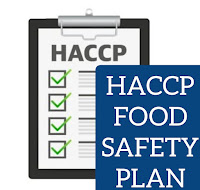A HACCP plan, which stands for Hazard Analysis and Critical Control Points plan, is a systematic approach to food safety. These plans help you identify, reduce, and react to biological, chemical, and physical hazards that may compromise the safety of food products.
Make an HACCP food plan
If you run a food business, you must have a plan based on the Hazard Analysis and Critical Control Point (HACCP) principles.
The HACCP plan keeps your food safe from biological, chemical and physical food safety hazards. To make a plan you must:
- Identify any hazards that must be avoided, removed or reduced
- Identify the critical control points (CCPs) - the points when you need to prevent, remove or reduce a hazard in your work process
- Set limits for the CCPs
- Make sure you monitor the CCPs
- Put things right if there is a problem with a CCP
- Put checks in place to make sure your plan is working
- Keep records
The main benefits of HACCP-based procedures are:
- Saves your business money in the long run
- Avoids you poisoning your customers
- Food safety standards increase
- Ensures you are compliant with the law
- Food quality standards increase
- Organises your process to produce safe food
- Organises your staff promoting teamwork and efficiency
- Due diligence defence in court.











0 comments:
Post a Comment